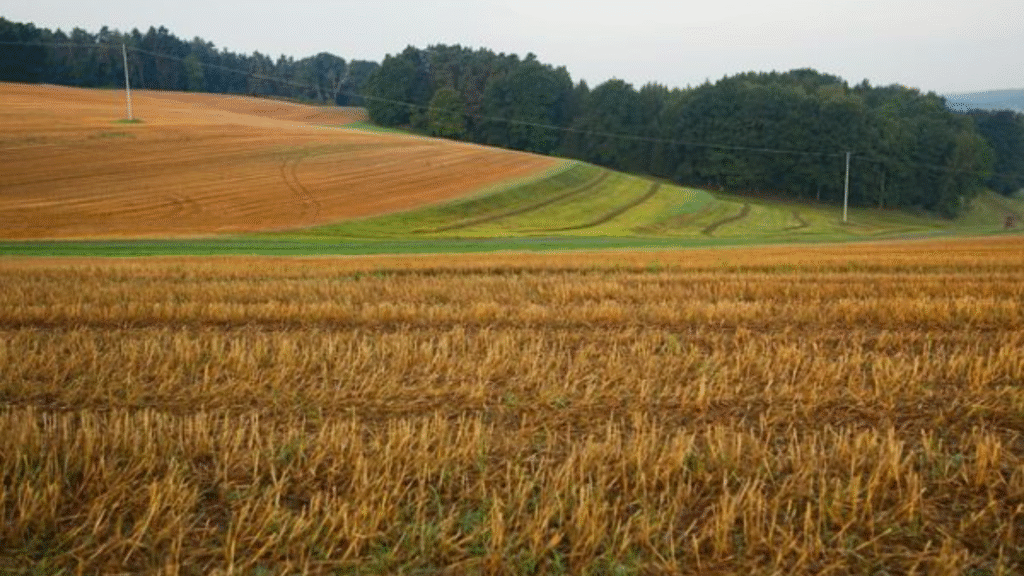The impacts of climate change threaten up to a 50% decline in South Africa’s agricultural production by 2050, growing the ranks of the 1 in 5 of the country’s people who live daily with food insecurity, Cape {town} Etc reports.
Researchers have estimated that reduced rainfall and higher temperatures will cause a 25% increase in SA’s maize yield variability by 2050, leading to less predictable harvests and impacting agricultural livelihoods and food prices.
Maize is a staple food source for poor households and is already showing annual price increases of 30% due to climate impacts on agricultural production.
Hunger and food insecurity, due to factors including the impact of climate change, affected approximately 21% of South African households (approximately 18 million households) in 2021, according to the National Food and Nutrition Security Survey.
Ensuring that more people have access to adequate, affordable and nutritious food calls for a new approach to supporting the agricultural sector that integrates enterprise development and climate adaptation strategies, says Stellenbosch Business School research fellow Roscoe van Wyk.
Growing the agricultural sector and improving its productivity, especially in the face of climate change and a growing population, should be a key economic priority for South Africa, he said, particularly if the National Development Plan (NDP) goals of an ‘integrated and inclusive rural economy’ and 1 million new jobs in the agricultural sector by 2030 are to be realised.
Agricultural productivity growth is generally two to three times more effective at reducing poverty than equivalent growth in other sectors such as mining or manufacturing, as agricultural growth not only creates jobs and increases household incomes but also increases the food supply.
Van Wyk, who lectures in development finance and small-scale enterprise development at Stellenbosch Business School, said rising food prices impacted disproportionately on low-income households, which spend a larger share of their income on food.
His research has found that a 1% increase in food prices reduces household welfare (the ability to meet basic needs including food, healthcare, education and safety) by more than 20%.
Poverty levels in South Africa steadily declined in the democratic era but these gains have reversed since the Covid-19 pandemic and are being worsened by the impact of climate change on agricultural production and rising food prices, said Van Wyk.
After decreasing between 2010 and 2019, South Africans’ vulnerability to hunger and lack of access to food are steadily rising back to pre-2010 levels.
‘The impact of climate change is experienced not only in decreasing rainfall and higher temperatures which reduce crop yields, but also in the rising incidence of extreme weather events such as less frequent but heavier rainfall leading to floods, interspersed with longer, harsher periods of drought. These impact substantially on livestock and crop health and production, while damage to infrastructure from extreme weather events disrupts agricultural and food supply chains.’
‘Increases in crop production have not kept pace with population growth over the past two decades, and the population continues to grow while agricultural yields are declining, worsening the prospects of reducing the levels of food insecurity.’
‘In order to reduce food insecurity and hunger, we cannot aim just to maintain current levels of agricultural production. It has to be improved in order to meet the needs of a growing population, with the added challenge of adapting to the impacts of climate change,’ Van Wyk said.
Food security in rural areas, where poverty is greatest, is very closely tied to the agricultural value chain, Van Wyk said, both in terms of employment and small-scale farming for market or subsistence farming to supplement food supply and to trade or barter.
Improving support to the agricultural sector, both in large-scale commercial farming and in small-scale, emerging and subsistence farming, has the potential to break the rural cycle of poverty and food insecurity
Also read:
Country towns in Cape growing due to surge in agriculture and tourism
Picture: Unsplash

